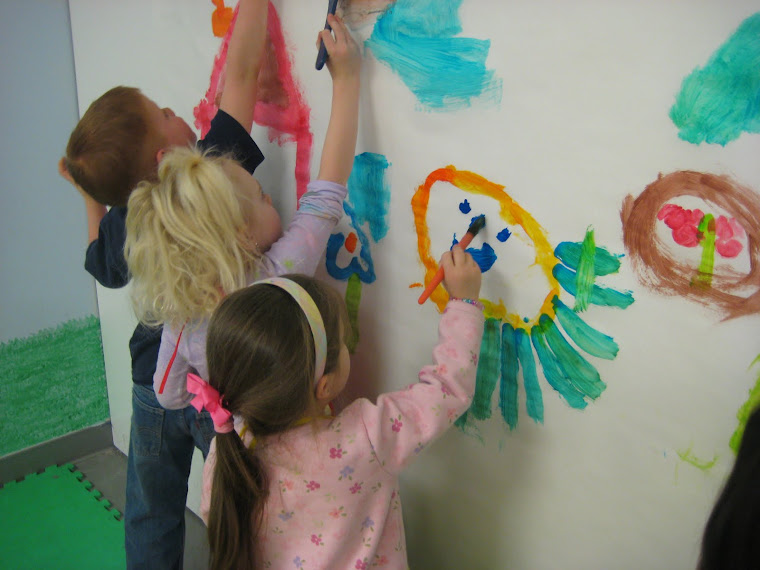
Through play, children develop skills they'll use in their school years.
Physical
Both gross and fine motor development occur through play. When kids play outdoors, if they feel comfortable and supported, they'll push themselves to new challenges and build motor skills. Developing fine motor skills, such as handling small objects, is a way for children to practice using their hands and fingers, which in turn builds the strength and coordination critical for writing skills. "When you're a preschooler or toddler, your attention comes out in a different way," explains Pizzolongo. "Your attention works best if your body is involved, as many parts of it as possible. So children learning to play where they're physically engaged with materials and interacting with each other would work best."
Language
Children build language skills through cooperative play. Their success depends on their ability and patience in explaining themselves. Teachers repeat the words children say to help others understand. They also teach words about the objects the kids are interested in handling. Students may talk to themselves while playing side by side with other children and then begin to repeat what they hear or start talking to each other. This develops into back-and-forth communication about play, becoming increasingly sophisticated by age 4. Children will now set rules, have specific roles, express their interests or objections, and chatter about funny situations that occur in the course of play.
Self-concept
Play builds a strong sense of self-confidence. Trying to do a certain trick on a play structure or build with blocks is hard work for a preschooler. Teachers acknowledge these experiences by articulating what they observe and letting the preschooler absorb these accomplishments again. There are also therapeutic benefits to play that help all children. For example, understanding that a parent is going to work and will come back at pick-up time can be reinforced through a play scenario.
Social development
Listening, negotiating, and compromising are challenging for 4- and 5-year-olds. Though children at this age are still egocentric, or unable to think beyond their own needs, working with others helps them develop an awareness of differences in people around them. These experiences in preschool provide a foundation for learning how to solve problems and communicate with peers. Play also helps build positive leadership qualities for children who are naturally inclined to direct but must learn how to control their impulses.
This is how we incorporate play at My Happy Preschool:
- Dramatic — Fantasy-directed play with dressing up in costumes, assuming roles as characters, using toys to represent characters in stories, creating imaginary settings, and pretending to take on the roles of adults.
- Manipulative — Holding and handling small toys often used to build objects but also found in puzzles, characters, beads, etc.
- Physical — Using the whole body in activities with bikes, balls, jump ropes, hoops, play structures, etc.
- Creative — Using art materials such as paint, clay, markers, pencils, glue, etc. The play takes place in the process of using the materials, not in the end product.


No comments:
Post a Comment
Note: Only a member of this blog may post a comment.